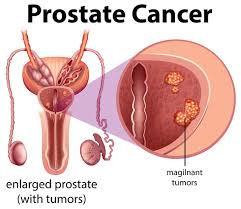A nurse is teaching a group of newly licensed nurses on effective techniques for counseling clients about sexually transmitted infections (STIs). Which of the following statements should the nurse include in the teaching?
"Use closed-ended questions when obtaining the health history."
"A client's reproductive health history is not needed for counseling purposes."
"Refer the client to genetic counseling if they have had an STI."
"Ask about the client's exposure to any past or present STIs."
The Correct Answer is D
Choice A reason:
Using closed-ended questions when obtaining a health history can be limiting and may not provide the full context of the patient's sexual health risks. Open-ended questions are generally recommended to encourage a more comprehensive discussion about sexual behaviors and risks.
Choice B reason:
A client's reproductive health history is crucial for counseling purposes. It provides insight into potential risks for STIs and helps tailor the counseling to the client's specific needs and circumstances.
Choice C reason:
Referring a client to genetic counseling for having had an STI is not typically necessary. Genetic counseling is more relevant for hereditary conditions and is not a standard part of STI management.
Choice D reason:
Asking about a client's exposure to past or present STIs is essential in STI counseling. It helps assess the client's risk level and informs the necessary prevention and treatment strategies.
Nursing Test Bank
Naxlex Comprehensive Predictor Exams
Related Questions
Correct Answer is ["B","C"]
Explanation
Choice A reason:
A temperature of 37.2°C (99°F) is slightly elevated but not necessarily indicative of sepsis. A heart rate of 88/min is within normal limits (60-100/min). This client's signs do not strongly suggest sepsis.
Choice B reason:
A heart rate of 132/min and a respiratory rate of 30/min are both elevated, which can be signs of sepsis. Sepsis can cause an increase in heart rate (tachycardia) and respiratory rate (tachypnea) as the body attempts to maintain adequate blood flow and oxygenation during a systemic infection.
Choice C reason:
A decrease in the level of consciousness combined with a heart rate greater than 130/min could indicate sepsis, as confusion or changes in mental status are common symptoms when the body is fighting a severe infection.
Choice D reason:
Bradypnea, or abnormally slow breathing, is not typically associated with sepsis, which more commonly causes rapid breathing. A WBC count of 10,000/mm³ is at the upper limit of the normal range and does not necessarily indicate sepsis without other symptoms.
Choice E reason:
A temperature of 36°C (96.8°F) is on the lower end of the normal body temperature range and does not suggest fever, which is a common sign of sepsis. A respiratory rate of 16/min is within the normal range (12-20/min) and does not indicate sepsis.
Correct Answer is B
Explanation
Choice A reason:
Testicular torsion is a condition where the spermatic cord becomes twisted, cutting off the blood supply to the testicle. It is not a typical complication following a prostatectomy. Testicular torsion is generally an acute condition that affects younger males and is unrelated to prostate surgery.
Choice B reason:
Erectile dysfunction (ED) is a common complication after prostatectomy. The surgery can damage the nerves and blood vessels that control erections, leading to ED. While nerve-sparing techniques aim to reduce this risk, some degree of erectile dysfunction is still possible after the procedure.
Choice C reason:
Cystitis, which is inflammation of the bladder, can occur after a prostatectomy due to the use of a catheter or as a result of the surgery itself. However, it is not as common or as significant a long-term complication as erectile dysfunction.
Choice D reason:
Paralytic ileus, a temporary cessation of bowel movements, can occur after any abdominal surgery due to the manipulation of the intestines or as a side effect of anesthesia. While it can be a complication of prostatectomy, it is typically resolved within a few days to weeks after surgery.

Whether you are a student looking to ace your exams or a practicing nurse seeking to enhance your expertise , our nursing education contents will empower you with the confidence and competence to make a difference in the lives of patients and become a respected leader in the healthcare field.
Visit Naxlex, invest in your future and unlock endless possibilities with our unparalleled nursing education contents today
Report Wrong Answer on the Current Question
Do you disagree with the answer? If yes, what is your expected answer? Explain.
Kindly be descriptive with the issue you are facing.
